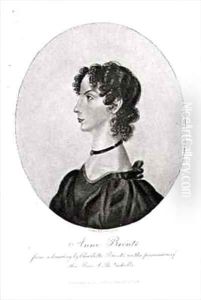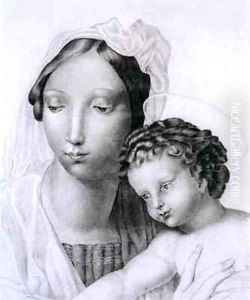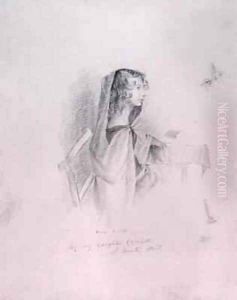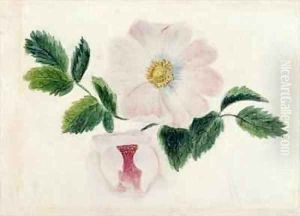Charlotte Bronte Paintings
Charlotte Brontë was an English novelist and poet, the eldest of the three Brontë sisters who survived into adulthood and whose novels have become classics of English literature. She was born on April 21, 1816, in Thornton, West Yorkshire, England, to Maria Branwell Brontë and Patrick Brontë, an Irish Anglican clergyman. Charlotte was the third of six children. In 1820, her family moved to the remote village of Haworth on the Yorkshire moors, where her father was appointed perpetual curate.
Tragedy struck the Brontë family early on; Charlotte's mother died of cancer in 1821, and her two older sisters, Maria and Elizabeth, died of tuberculosis in 1825 after contracting the illness at the Clergy Daughters' School at Cowan Bridge. These events deeply affected Charlotte and her surviving siblings: her brother Branwell, and her sisters Emily and Anne. The four children became very close, creating imaginary worlds and writing stories and poems about them, which was the beginning of Charlotte's literary development.
Charlotte continued her education at Roe Head School, where she eventually became a teacher. To pursue her ambitions of becoming a published writer, Charlotte, along with her sisters, initially wrote under male pseudonyms. This was a common practice at the time, given the difficulties women often faced in getting published and taken seriously. Charlotte adopted the pen name 'Currer Bell'.
Charlotte's first novel, 'The Professor', was rejected by publishers, but her second, 'Jane Eyre', was published in 1847 and became an instant success. The novel presented strong criticism of the Victorian class system, gender inequality, and the condition of women. It has since become one of the most famous works in English literature.
Charlotte continued to write and publish novels, including 'Shirley' in 1849 and 'Villette' in 1853, which also addressed social issues and the inner emotional lives of women. Her work is characterized by its intensity, complexity of characters, and concern with moral issues.
Charlotte's life, however, was marked by loneliness and loss. Her siblings died young: Branwell in 1848, Emily in the same year, and Anne in 1849. Charlotte found solace in her writing and her friendship with her father's curate, Arthur Bell Nicholls, whom she married in 1854. However, her happiness was short-lived; she died on March 31, 1855, possibly from complications related to pregnancy or from tuberculosis, which had plagued her family. Charlotte Brontë left behind a legacy that continues to resonate with readers and writers, influencing the landscape of literature with her powerful female protagonists and her critique of social conventions.





